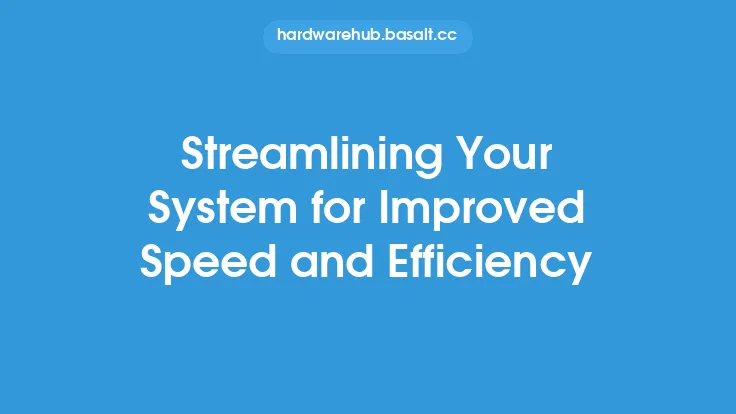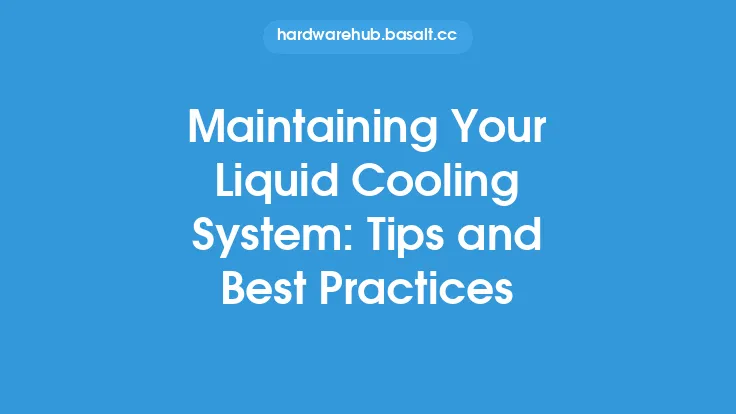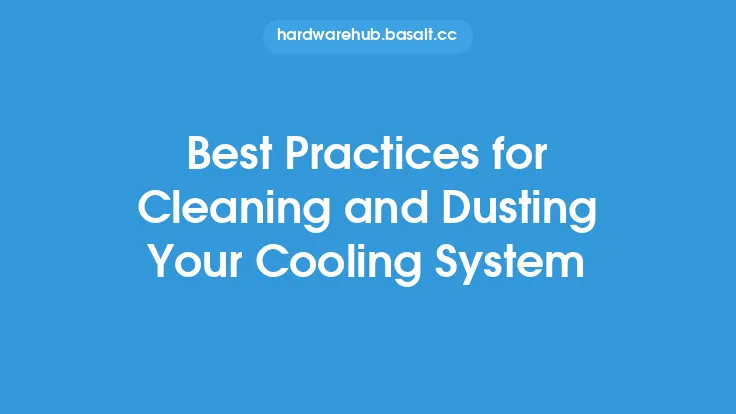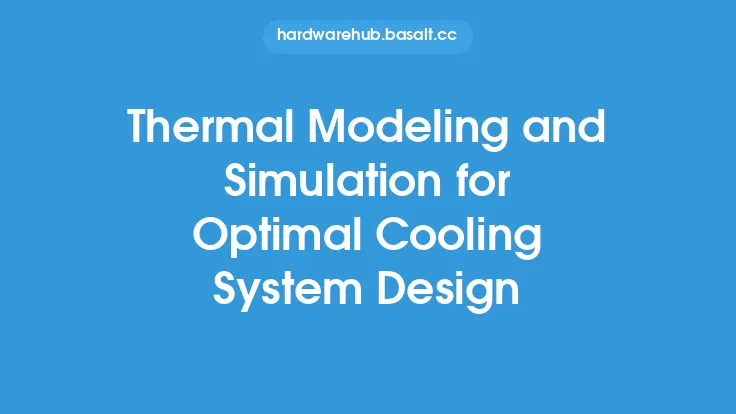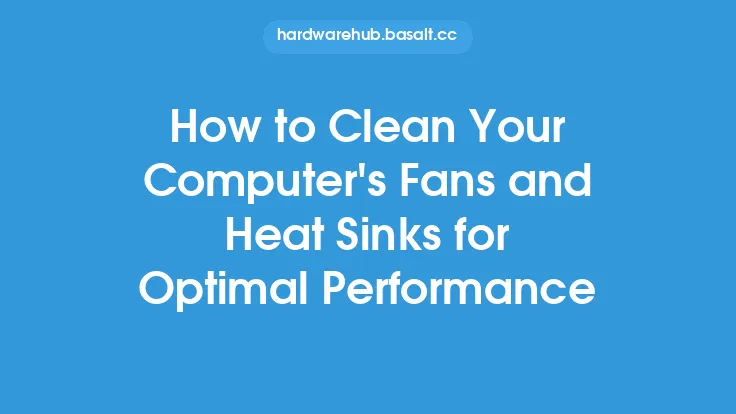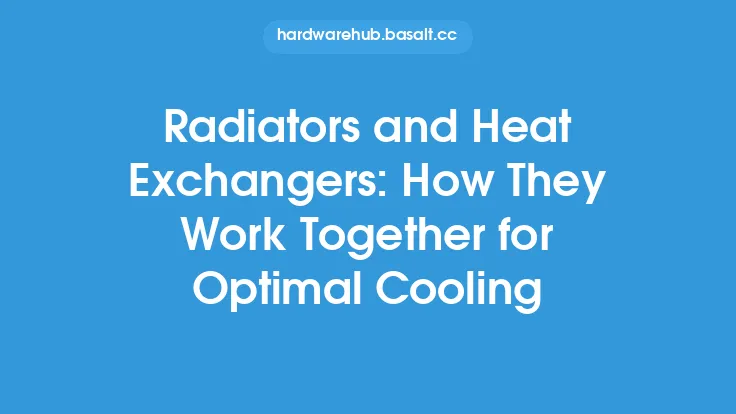Proper maintenance of a cooling system is essential to ensure optimal performance and efficiency. A well-maintained cooling system can help prevent overheating, reduce energy consumption, and prolong the lifespan of the system. In this article, we will discuss the importance of regular maintenance and provide tips on how to keep your cooling system running smoothly.
Introduction to Cooling System Components
A typical cooling system consists of several components, including the heat exchanger, fan, pump, and thermostat. The heat exchanger is responsible for transferring heat from the system to the surrounding air or water. The fan helps to circulate air through the heat exchanger, while the pump circulates coolant through the system. The thermostat regulates the temperature of the system, turning the fan and pump on and off as needed. Understanding how these components work together is crucial for effective maintenance.
Importance of Regular Filter Maintenance
The filter is a critical component of the cooling system, as it helps to remove dust and debris from the air. A clogged filter can reduce airflow, causing the system to work harder and increasing energy consumption. Regular filter maintenance is essential to ensure optimal performance. The filter should be cleaned or replaced every 1-3 months, depending on usage and environmental conditions. A dirty filter can also lead to premature wear on the fan and other components, reducing the lifespan of the system.
Checking and Replacing Coolant
The coolant is a vital component of the cooling system, as it helps to transfer heat from the system to the heat exchanger. Over time, the coolant can become degraded, reducing its effectiveness. It is essential to check the coolant level regularly and top it off as needed. The coolant should also be replaced every 2-5 years, depending on the type of coolant and usage. When replacing the coolant, it is essential to use a compatible type to avoid damaging the system.
Inspecting and Cleaning the Heat Exchanger
The heat exchanger is a critical component of the cooling system, as it helps to transfer heat from the system to the surrounding air or water. Over time, the heat exchanger can become clogged with dust and debris, reducing its effectiveness. Regular inspection and cleaning of the heat exchanger are essential to ensure optimal performance. The heat exchanger should be cleaned every 6-12 months, depending on usage and environmental conditions. A clogged heat exchanger can lead to reduced airflow, increased energy consumption, and premature wear on the system.
Lubricating Moving Parts
The cooling system has several moving parts, including the fan and pump. These parts require regular lubrication to ensure smooth operation and prevent premature wear. The fan and pump should be lubricated every 6-12 months, depending on usage and environmental conditions. Proper lubrication can help to reduce friction, noise, and vibration, ensuring optimal performance and prolonging the lifespan of the system.
Monitoring System Performance
Regular monitoring of system performance is essential to ensure optimal operation. The system's temperature, pressure, and flow rate should be monitored regularly to detect any potential issues. Any unusual readings or changes in system performance should be investigated and addressed promptly. Regular monitoring can help to identify potential problems before they become major issues, reducing downtime and prolonging the lifespan of the system.
Scheduling Regular Maintenance
Regular maintenance is essential to ensure optimal performance and efficiency of the cooling system. A regular maintenance schedule should be established, including tasks such as filter cleaning, coolant checks, and heat exchanger cleaning. The schedule should be based on usage and environmental conditions, as well as the manufacturer's recommendations. Regular maintenance can help to prevent overheating, reduce energy consumption, and prolong the lifespan of the system.
Troubleshooting Common Issues
Despite regular maintenance, issues can still arise with the cooling system. Common issues include reduced airflow, increased energy consumption, and premature wear on components. Troubleshooting these issues requires a systematic approach, including checking the filter, coolant level, and heat exchanger. Any issues should be addressed promptly to prevent further damage to the system. Regular maintenance and troubleshooting can help to ensure optimal performance and efficiency of the cooling system.
Conclusion
In conclusion, proper maintenance of a cooling system is essential to ensure optimal performance and efficiency. Regular tasks such as filter cleaning, coolant checks, and heat exchanger cleaning can help to prevent overheating, reduce energy consumption, and prolong the lifespan of the system. By following the tips outlined in this article, you can help to ensure your cooling system runs smoothly and efficiently, providing reliable operation and minimizing downtime. Remember to always refer to the manufacturer's recommendations and guidelines for specific maintenance tasks and schedules.
